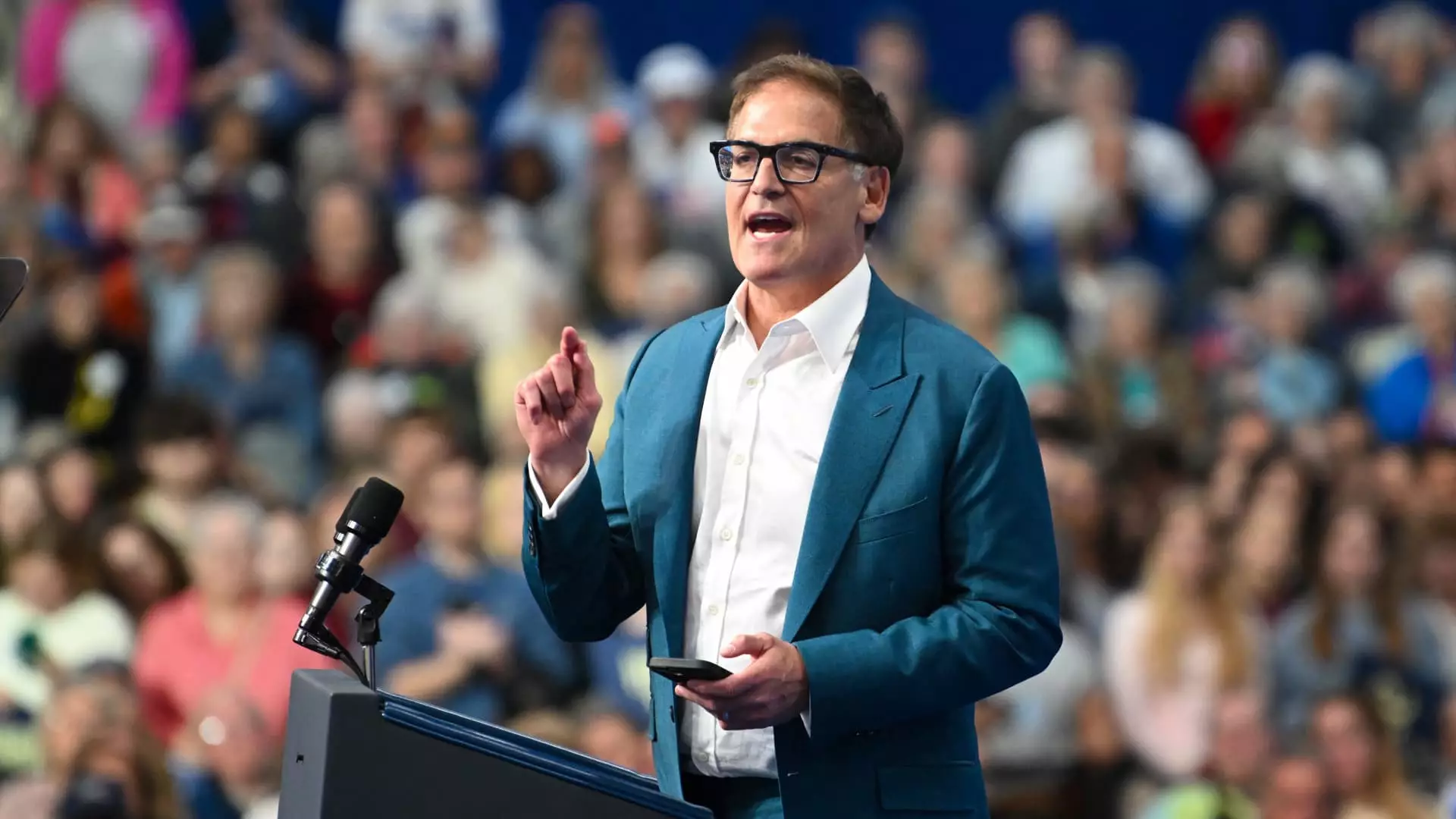Mark Cuban, the billionaire investor and entrepreneur known for his role on the reality show “Shark Tank,” has recently made headlines not only for his wealth but also for his vocal support of Vice President Kamala Harris in the upcoming presidential race against former President Donald Trump. However, Cuban has made it clear that he does not aspire to occupy any political office. This declaration was reinforced during an interview on ABC’s “This Week,” where he expressed a strong aversion to any political role, saying, “I have no interest in being a politician of any type.” This position raises intriguing questions about the nature of political engagement and whether individuals like Cuban can influence governance without taking on formal roles.
Cuban’s entrepreneurial spirit has often positioned him as a disruptor across various industries, and he maintains that identity within the political realm. His approach to politics seems to mirror his business philosophy, prioritizing innovation and change rather than conventional political aspirations. This was underscored when Cuban previously hinted at his interest in filling the role of SEC Chair Gary Gensler, a position he believes necessitates significant change due to his criticisms of Gensler’s leadership. Cuban’s insistence on being a disruptive force instead of a politician may stem from a desire to enact change without the bureaucratic constraints that often accompany government roles.
Active Campaign Involvement without Financial Ties
Despite his stated disinterest in receiving a cabinet position or any political title, Cuban’s increasing involvement in Harris’s campaign indicates a willingness to influence the political landscape. He has been actively participating in media interviews and rallies, leveraging his platform to advocate for Harris’s presidential bid. Interestingly, Cuban has not made any financial contributions to her campaign, suggesting that his motivations are not driven by political gain or financial incentives but rather by a genuine belief in the need for pragmatic leadership during a critical election cycle.
Cuban’s contributions to the campaign extend beyond mere endorsement. He has voiced opinions on policy issues, specifically calling for the removal of Federal Trade Commission Chair Lina Khan due to her strong stance on antitrust regulations affecting major tech companies. His framing of Khan’s policies as detrimental highlights his view that consumer-focused approaches can sometimes be counterproductive. By advocating for a shift in leadership within the FTC, Cuban suggests a vision for corporate regulation that aligns more closely with his entrepreneurial insights.
Ultimately, Mark Cuban represents a new breed of political influencer—one that embraces a non-traditional approach to shaping policy discussions without seeking office. His reluctance to step into a political role while passionately campaigning for a candidate reflects a growing trend among business leaders who choose to engage in the political process through advocacy. In an era where the lines between business, entrepreneurship, and politics are increasingly blurred, Cuban’s unique stance may inspire other prominent figures to adopt a similar model of influence, emphasizing action over title.


Leave a Reply